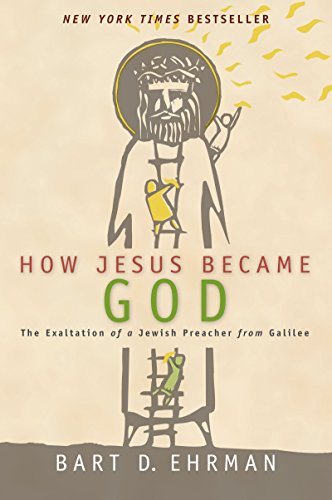
Bart D Ehrman, 2014 Ehrman is a master of simplifying difficult concepts, making scholarly debates accessible to laymen. This book is full of interesting material that will probably be new and revealing to readers outside of specialist areas or academia. For example, the early chapters explore how the concept of humans becoming Gods was nothing new in the cultural milieu of the Greeks or Romans, civilisations that either influenced or governed the lands of Jesus’s followers. Amongst early Christians, there were sects with Christologies that differed from the orthodoxy of today that represented these various forms of humans being deified.
In Israel angels and Kings were regarded as Sons of God, the latter after their anointing. The Ebionites believed Jesus became adopted as a Son of God at his baptism. Romans were comfortable with their Emperors being regarded as Gods. The Greeks told tales of Gods procreating with humans, they also understood that that were levels of Gods. The notion of a human becoming a God was not a new concept. Where Christianity diverged in the teachings of John’s Gospel, is the revelation that Jesus as God, existed before the world was created, that he was in the beginning with God. This makes Christianity Polytheistic, which in turn is problematic with monotheists (Jews). This lead to contortions in the definition of God, arguably resolved under Constantine’s prompting at the council of Nicea.
In asking the question whether Jesus regarded himself as equal with God, Erhman believes there are grounds to support the idea that Jesus may have quietly considered himself as the earthly Messiah, but it is important to stress that Messiah does not equate with being God. In so doing he relies on the earliest sources of evidence, namely Pauls epistles and the Gospel of Mark, discounting John’s later Gospel contribution. He explores the influence the later supporters of Jesus (end of first century) may have had on the resurrection stories to further their ends.
If your beliefs about Jesus as God have changed, then there is much in Ehrman’s book to satisfy and endorse your point of view, he offers credible insights into how the resurrection of God narrative could have been orchestrated. Once a notion is embedded into the consciousness of an empire it is difficult to deconstruct. It is quite alarming how fragile the evidence in the foundation of today’s orthodoxy is.